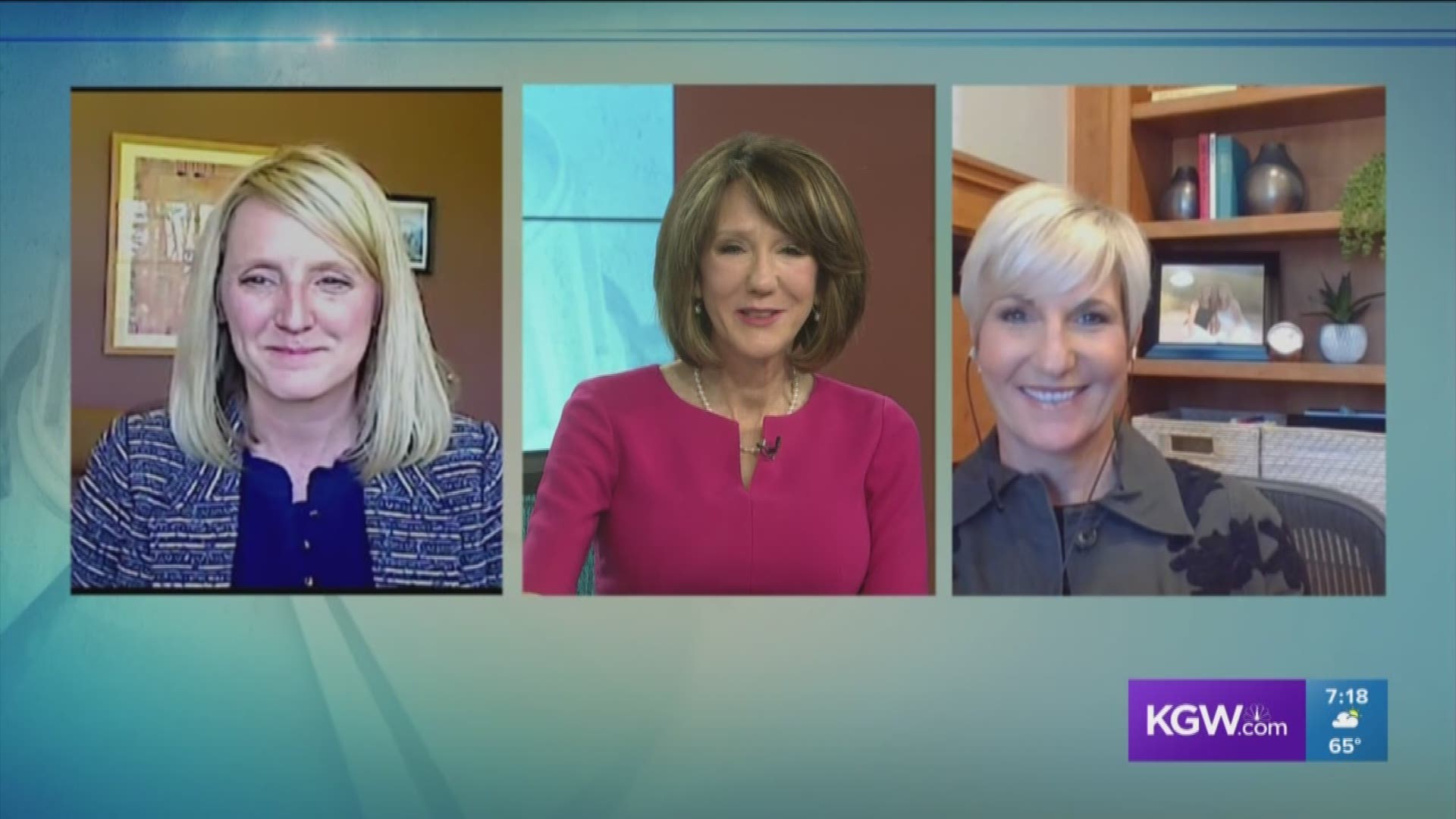PORTLAND, Ore — The state of our world is weighing heavily on all of us.
For people struggling with their mental health or substance use disorders, the uncertainty of the situation and stay-home order can exacerbate those underlying issues.
Cascadia Behavioral Healthcare Chief Medical Officer Jeffrey Eisen says Oregon’s stay-home order and the COVID-19 pandemic are leading to feelings of isolation, fear and worry for many. It’s an incredibly difficult time for the population Cascadia serves; on top of mental health or addiction, they often face other challenges in life such as physical health problems, unstable housing, unemployment and other economic issues.
Under the stay-home order, we’re required to stay away from other people so we don’t inundate Oregon’s health care system. Unfortunately, while physically and socially distancing, many people aren’t able to reach out for help. Those individuals are even more vulnerable right now because they’re not seeing other people who would normally pick up on something, ask about their mental health or direct them to resources.
For those reasons, Eisen and other mental health professionals are concerned.
We know calls to suicide prevention lifelines are on the rise and mental health professionals are worried this situation is leading to increased rates of self-harm and attempted suicide.
“We are feeling, additionally, very concerned about those we serve and members of the community. So many individuals have lost jobs, they’re facing unemployment, they have rent coming due. They also have concerns about food and nutrition needs as well and food banks are lacking the services and supplies they need,” Dr. Eisen said, “All of that is really unsettling and concerning. Our goal is to be there for those we serve and the broader community and we are trying to find ways to be resilient amidst all the challenges we’re facing today.”
The coronavirus outbreak has dramatically impacted the way they serve Oregonians; Eisen says Cascadia has shifted to using more technology for patients who prefer to call a provider or use telehealth rather than physically visit them.
The need for resources and help is likely greater than ever, but Cascadia says they haven’t seen an increased demand for crisis services. Eisen believes it’s likely because people assume they aren’t open or providing mental health and substance use treatment.
Cascadia’s services are still open for anyone who does want to be seen in-person. Their message: We are open and here to help.
“One of the myths that exists currently is that amidst COVID-19 there would be less behavioral health or substance use treatment services available and that is actually not the case at all,” Dr. Eisen said, “We are operating skeleton crews at each of our health centers and in addition to that we operate Multnomah County’s Urgent Walk-In Mental Health Clinic and we have a staff available there for individuals that would prefer not to call in or use our video services.”
Once businesses start slowly opening back up and society returns to some semblance of normalcy, Cascadia expects to see a surge in demand for their services and treatment.
“We think we may see increased services and increased needs as Governor Brown rolls back the stay-home order and people start to emerge back into the community,” Eisen said.
Mental health and substance use treatment are historically underfunded in Oregon and around the United States. With this crisis, we could see more people in need and higher demand for services to be provided through technology so people can avoid in-person contact. Telemedicine can be costly to health care providers and clients – particularly the population that Cascadia serves, who mainly rely on Medicaid.
When asked if Cascadia is equipped to handle increased pressure for treatment and resources, Eisen says, together with other partners in the Portland metro area, they will be.
“It really does put a strain on our resources. But I’m very hopeful that behavioral health organizations like ours will be considered when there are state and federal funding measures to help organizations in need,” Eisen added.
While Cascadia has not received any emergency funding from the government yet, they are working with insurance payors to figure out ways to cover the change in services for patients.
Eisen says Oregon Health Authority plans to release money to collaborative care organizations (CCOs) in the state and that funding will funnel to organizations like Cascadia.
Cascadia wants anyone experiencing a mental health crisis to go to the Urgent Walk-in Clinic at 4212 SE Division St. in Portland. People can get care immediately and will be hooked up with resources moving forward. It’s open from 9 a.m. to 9 p.m. every day.
You can also call the Multnomah County Crisis Line 24/7 at (503) 988-4888.
There are ways we can all help one another; one is by simply reaching out and checking in on your circle of friends, family and anyone you know who might be struggling during this time to find out what they need. That is one of the “Three R’s” Eisen suggests we follow.
“The first ‘R’ would be find a way to maintain a routine as best you can. The second would be to consider the extent to which you use media and listen to media and think about reducing that if you think it’s making you too anxious or nervous. And the third is to reach out to others and provide opportunities to serve, and in doing so it helps us feel better too.”

